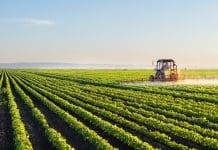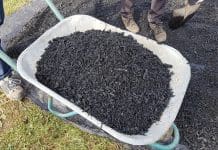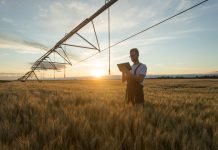The UK government has announced a significant financial commitment to support farming and the environment over the next three years
In the UK Government’s 2025 Spending Review, the Department for Environment, Food & Rural Affairs (DEFRA) secured over £2.7 billion annually from 2026 to 2029 to boost sustainable farming, enhance nature recovery, and help farmers adapt to changing environmental and economic challenges.
This landmark funding increase reflects a strong focus on balancing food production with environmental stewardship, ensuring the future resilience of the farming sector.
A focus on farming schemes
A record 50,000 farm businesses are now taking part in environmental land management schemes. Around half of all farmed land in England is now managed under these schemes.
The settlement means the government will continue to invest in sustainable food production through:
- The Sustainable Farming Incentive (SFI)
- Countryside Stewardship Higher Tier (CSHT)
- Landscape Recovery
- ELM capital grants
These schemes reward farmers for taking practical actions that support food production, improve the environment, and enhance business resilience. This helps protect the long-term health of soils, water, and wildlife, which are essential for sustainable food production and a healthy environment.
This represents the most significant investment in nature-friendly farming in history, marking a 150% increase in current spending from £800 million in 2023/24 to £2 billion by 2028/29.
Furthermore, the government confirms that it will honour all existing SFI, Countryside Stewardship, and Higher Level Stewardship agreements and will continue payments under previous agri-environment schemes until those agreements expire.
A key objective outlined is to improve the user experience of the schemes, ensuring that bureaucracy does not become a barrier between the schemes and the farmers.
Additionally, farmers and land managers can gain access to the Nature for Climate Fund and Biodiversity Targets Programme, worth up to £400 million a year, for tree planting and peatland restoration.
A promise to support productivity and innovation
DEFRA confirms its continued investment in helping farmers improve profitability and productivity and strengthen their businesses, both now and for the future, including:
- Continuing to pay out existing grants
- Funding innovation and research through the Farming Innovation Programme, which supports the development and adoption of new practices and technologies, including those farmers who have historically struggled to access these funds.
- Advice and support services to help farmers identify opportunities, access schemes and plan improvements in making the transition to nature-friendly farming.
Phasing out delinked payments
DEFRA has also confirmed its plans to phase out delinked payments. The money saved from this will support increased investment in environmental land management schemes. These schemes aim to improve nature, like healthier soils, cleaner water, and better ecosystems, which are essential for long-term food security.
Specifically, for 2026 and 2027:
- They will reduce delinked payments by 98% on the first £30,000.
- Any payment amount above £30,000 will be cut entirely (100% reduction).
This means farmers who received the biggest payments in the past will face the most significant cuts. The Rural Payments Agency (RPA) will send letters to farmers affected to explain these changes.
The need to support farming: The future is farming
The government’s New Deal for Farmers is designed to support growth and return farm businesses to profitability. It has already:
- Extended the Seasonal Worker Visa Scheme for 5 years
- Outlined plans to back British produce across the public estate
- Protected farmers in trade deals, including with India and the US
- Committed £110 million in farming grants to improve productivity, trial new technologies and drive innovation in the sector
- Started to make the supply chain fairer, including new regulations for fairness in the pig supply chain, which follows the dairy sector
- Announced plans to invest over £200 million in a new National Biosecurity Centre to protect livestock from diseases
- Appointed former National Farmers Union (NFU) president Baroness Minette Batters to recommend new reforms to boost farmers’ profits. We’re moving towards a future where farmers are paid fairly for the food they produce and the environmental work they do and where the public gets better value and outcomes from every pound spent.











